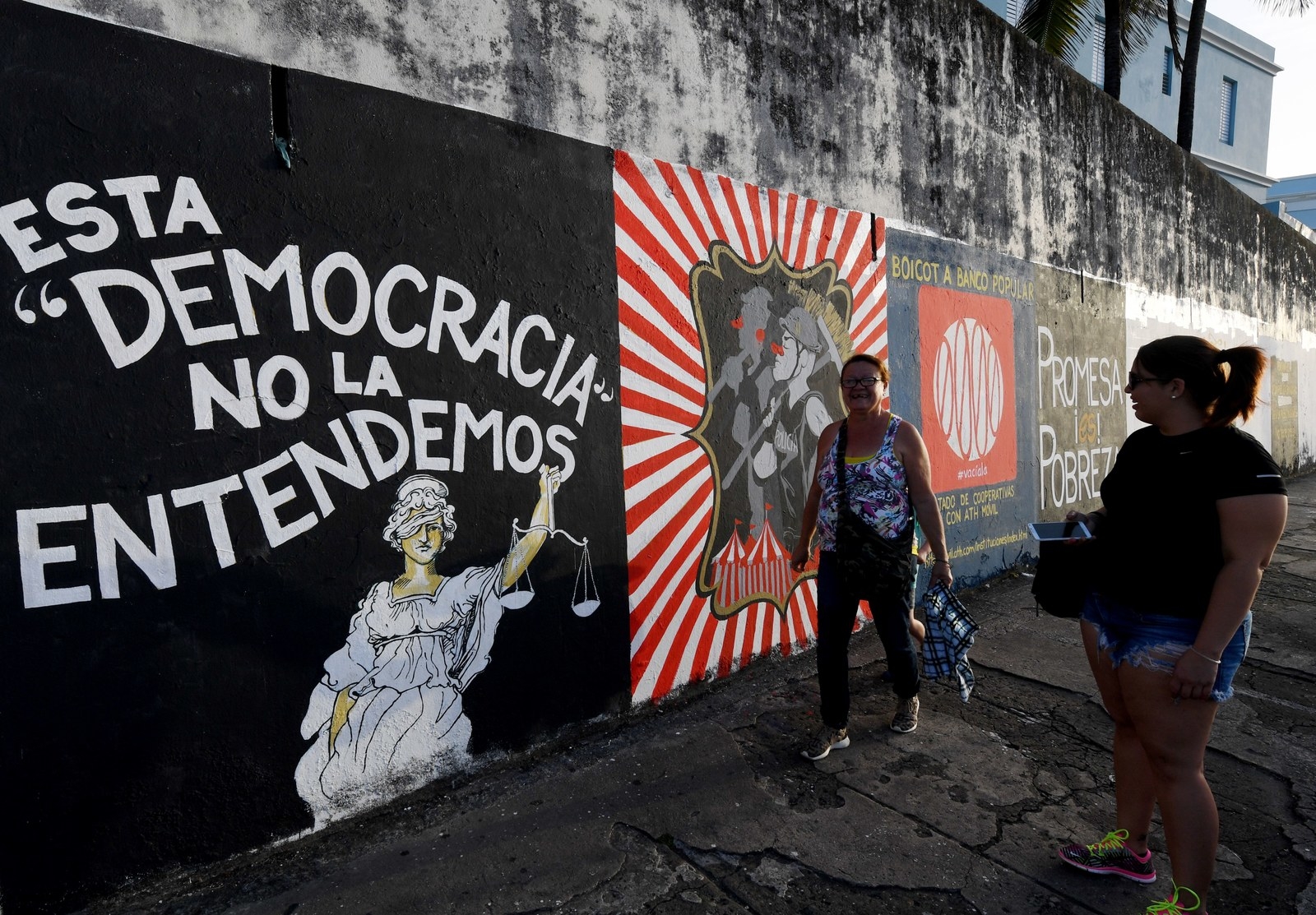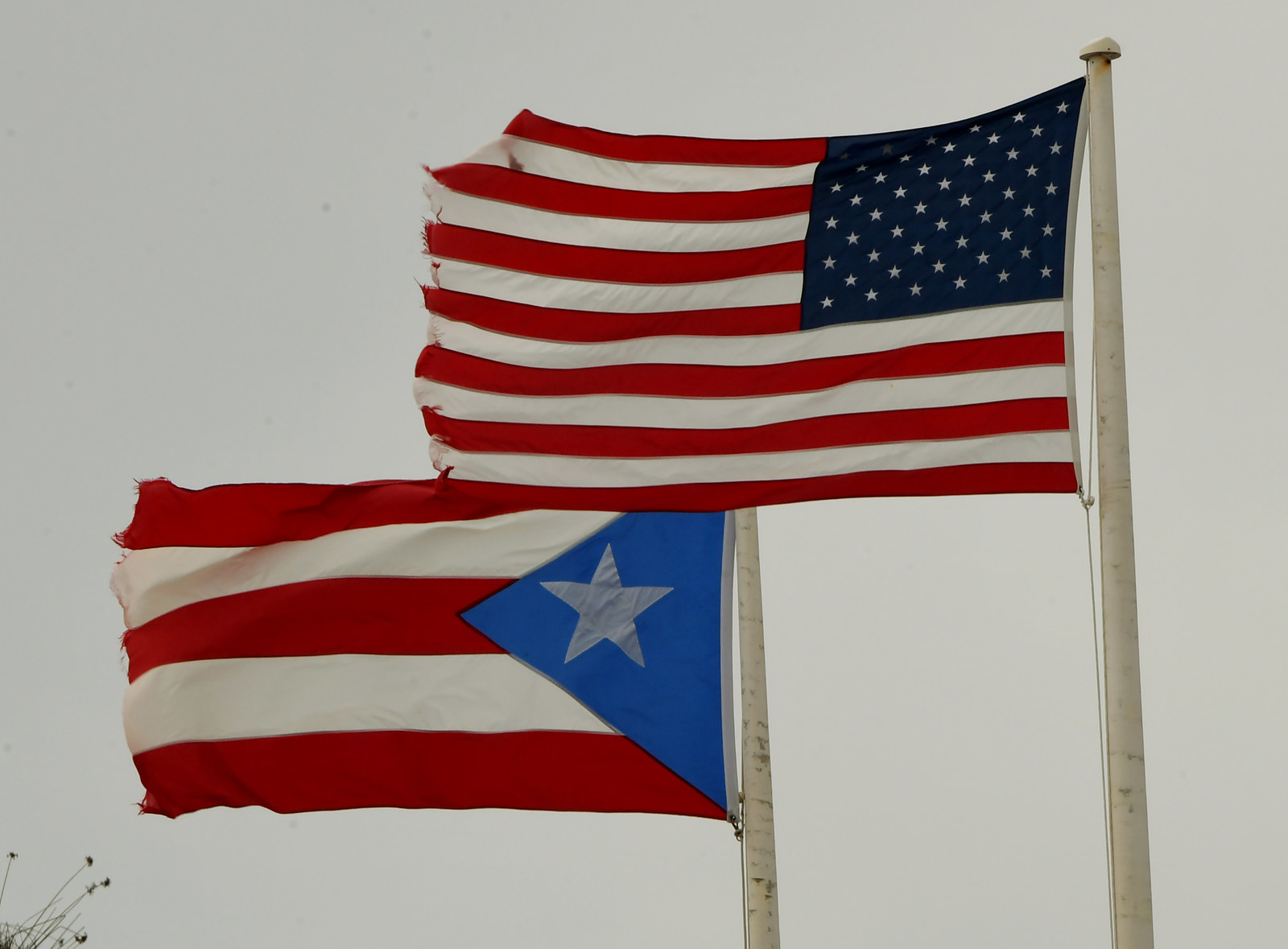Puerto Ricans voted overwhelmingly on Sunday in support of becoming the 51st US state, reigniting the uneasy debate over the political status of the country's oldest and largest territory.

What is the current status of Puerto Rico?
The Caribbean island has been under US control since the Spanish-American War of 1898. In 1917, Puerto Ricans were granted US citizenship. The island became an official US commonwealth in 1952, meaning that it has its own constitution, and that its residents vote for their own governor.
Puerto Ricans are not granted all the same rights as Americans living in a US state. They can't vote in the general election for the US president and they get only one, nonvoting representative in Congress. On the plus side, they do not have to pay federal income tax. Puerto Rico receives some funding for highways and social programs, but not as much as a state does. It also gets military protection from the US.
What options does Puerto Rico have for its future?
Puerto Ricans were asked to vote between remaining a commonwealth, becoming a state, becoming an independent nation, or entering a "free association" agreement with the US. Under the latter option, the island would still receive military protection and funding from the US.
This is actually the fifth time that the island has voted on whether to change its relationship with the US. Puerto Rico voted against statehood three times — in 1967, 1993, and 1998 — but voted for the first time in 2012 to become a state. Ultimately, nothing happened with the vote, and many argued it was moot since one-third of ballots were left blank for a question that asked if residents favored statehood, according to CNN.
This time, nearly half a million voters said yes to statehood, compared to about 7,600 who voted for free association/independence, and nearly 6,700 who backed the current territorial status, the Associated Press reported based on early election results. Still, voter turnout was very low, even when compared to the 2012 referendum, leading opponents to question the legitimacy of the vote.

Why did Puerto Ricans decide to vote on statehood now?
The referendum coincides with the 100-year anniversary of the US granting citizenship to residents of Puerto Rico, but perhaps more importantly the island is dealing with a major financial crisis, and supporters believe statehood would help.
The commonwealth declared a form of bankruptcy on May 3. It was the largest such filing by a municipality in the US, owing its creditors $73 billion. The island is dealing with high unemployment, and nearly half of the population lives below the poverty level, CNN reported. All this is further exacerbated by the fact that people keep leaving. In 2015, almost 90,000 Puerto Ricans moved to the continental US.
Supporters of statehood say that Puerto Rico would not be in its current financial bind if it received income and corporate tax revenues like states do. They also say the island's economy would be able to bounce back faster with an influx of federal spending.

What will happen now that Puerto Rico has voted to become a state?
The vote was conducted in the hope of convincing the US Congress to reconsider its relationship with Puerto Rico. Congress would now need to pass a statute laying out steps for the island to transition into a state. Without this, Puerto Rico's status will remain the same.
Gov. Ricardo Rosselló now plans to put in motion "the Tennessee Plan," named after the work done there in 1796 to receive statehood. This plan involves appointing five representatives and two senators, who will go to Washington, DC, and request to take their seats, the New York Times reported.
“In any democracy, the expressed will of the majority that participates in the electoral processes always prevails,” Rosselló said, according to the AP. “It would be highly contradictory for Washington to demand democracy in other parts of the world, and not respond to the legitimate right to self-determination that was exercised today in the American territory of Puerto Rico.”
Still, according to the Times, many say that Congress will not be inclined to welcome Puerto Rico, since it has such high levels ofd unemployment and poverty.
